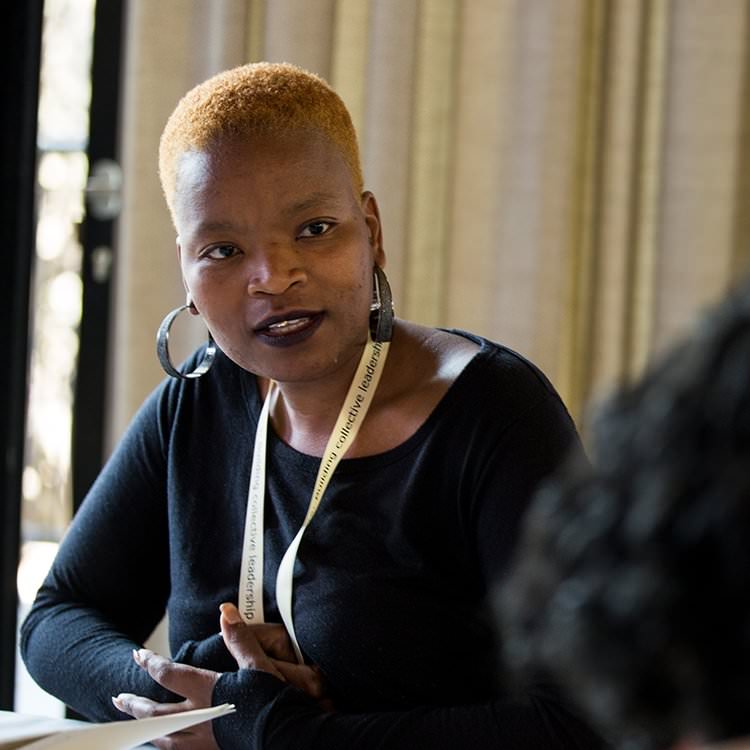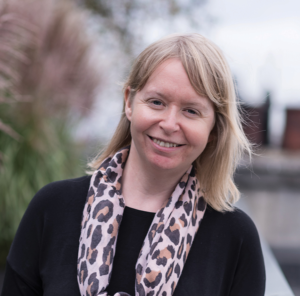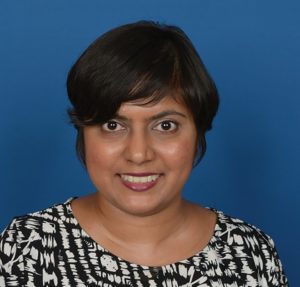The Atlantic Fellows
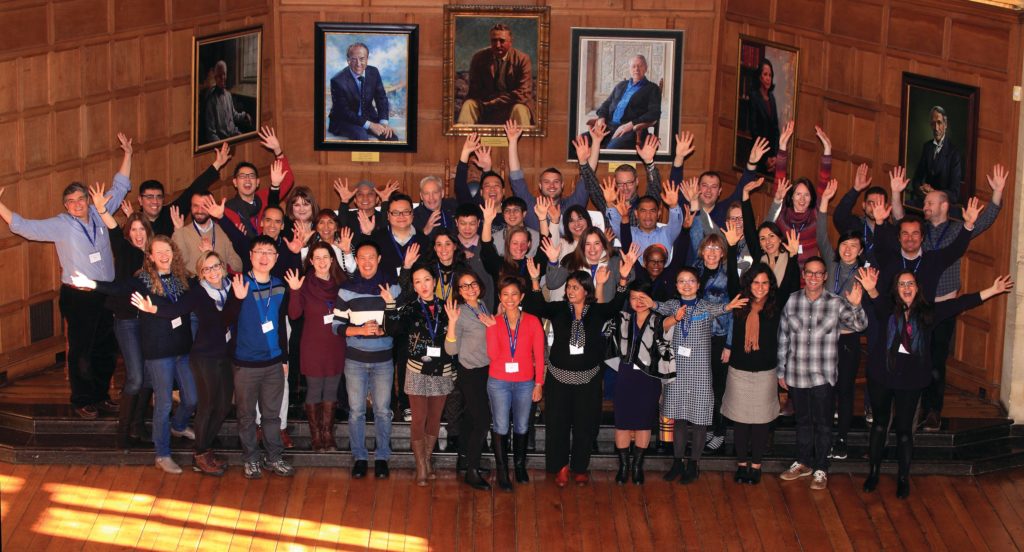
“Use your wealth to help people. Use your wealth to create institutions to help people. When it comes down to it, it’s always people.”—Chuck Feeney
One of our final “Big Bets” was the establishment of the Atlantic Fellows programs in 2015. This global network of seven interconnected programs will continue to tackle the issues and in places that were central to Atlantic’s grantmaking in the decades to come. The Fellows are change-makers, policymakers, researchers, activists, and movement-builders from diverse disciplines and borders, who work together around the globe to advance fairer, healthier, more inclusive societies. Life-long connections are fostered through active discussion and collaboration at in-person convenings and in online curriculum. Fellows work together to enact social change through the arts, advocacy, legal action, research, and activism. The Atlantic Institute, based in Oxford and operated by the Rhodes Trust, serves as the independent convening, experience and knowledge-sharing hub for the Atlantic Fellows.
Our commitment of $700 million—our biggest investment ever—alongside other partner organizations and governments, will support the work of a global network of thousands of Atlantic Fellows over the next two decades, and beyond.
The Fellows programs include:
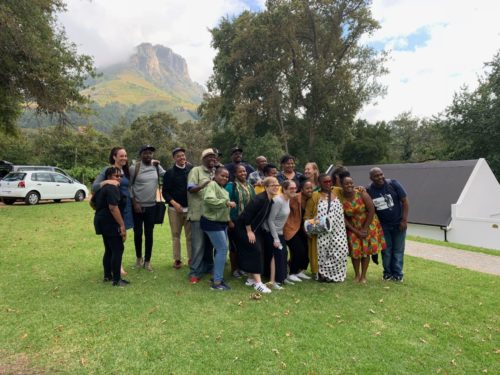
- Atlantic Fellows for Equity in Brain Health
- Atlantic Fellows for Health Equity in Southeast Asia
- Atlantic Fellows for Social and Economic Equity
- Atlantic Fellows for Health Equity in South Africa
- Atlantic Fellows for Social Equity
- Atlantic Fellows for Racial Equity
- Atlantic Fellows for Health Equity
For in in-depth account of the evolution of the Atlantic Fellows program as the foundation’s final big bet, you can read Mary McDonnell’s comprehensive report here.
Five years since the first programs commenced, more than 651 Fellows from 68 countries have already made a tangible impact both on their local communities, as well as the global level. Below is a snapshot of the work they have accomplished towards empowering communities.
Collaborative Projects
Mediterranean societies are adversely impacted by the global brain health crisis
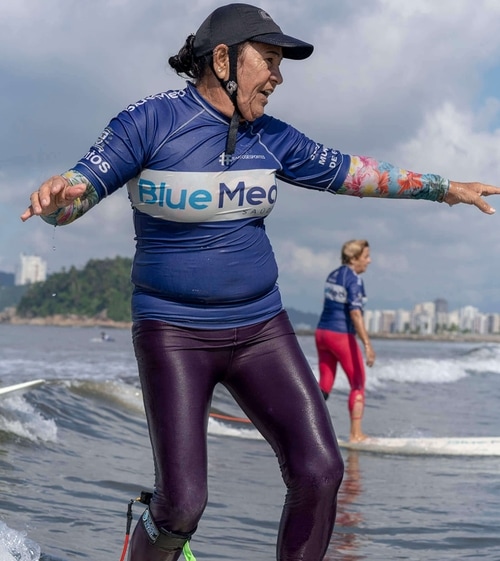
The risk of dementia is tightly linked to aging. The expansion of aging populations is occurring most rapidly in low-and middle-income countries; the personal, societal, and economic burden of dementia will be largely experienced in these regions. This poses a unique challenge in East Mediterranean cultures where families traditionally revere their elders.
By raising awareness and destigmatizing these devastating conditions, we can help promote more equitable societies in the region and improve the quality of life for all.
Hany, Elaine and Stelios came up with the idea at an event hosted by the Atlantic Institute in Oxford in February 2018. Together, they co-founded the East Mediterranean Brain Health Initiative (EMBHI) and built networks across the three countries to support individuals and families dealing with dementia.
Read more on the Atlantic Fellows website.
Youth suicide rates have escalated in the Philippi nes
nes
Lack of access to mental health care for young Filipinos, particularly in remote areas, is deadly. Attempted youth suicides and deaths have risen sharply during the COVID-19 pandemic, with an increase in suicide-related calls to mental health centers across the country. It is critical to combat social stigma around seeking mental health support and to provide that support, such as suicide prevention programs. Atlantic Fellows collaborated to advance policy reform to improve access to these essential life-saving resources.
Read more on the Atlantic Fellows website.
The global movement of displaced people is a defining feature of our times
 Displacement is a global issue, driven by a confluence of intersecting historical and political factors. Yet today, the narratives surrounding it largely silence or vilify those who have become displaced, stoking nationalism and fear. With over 26 million refugees worldwide—half of them children—their voices that should be elevated. Their stories are invaluable to our efforts to advance equitable solutions and to eradicate forcible, traumatic displacement and its many fallouts.
Displacement is a global issue, driven by a confluence of intersecting historical and political factors. Yet today, the narratives surrounding it largely silence or vilify those who have become displaced, stoking nationalism and fear. With over 26 million refugees worldwide—half of them children—their voices that should be elevated. Their stories are invaluable to our efforts to advance equitable solutions and to eradicate forcible, traumatic displacement and its many fallouts.
Read more on the Atlantic Fellows website
COVID-19
Never have social, economic, racial, and health inequities been so conspicuous as than during the COVID-19 pandemic.

Since April 2020 more than 70 Fellows have successfully applied for a total of 57 Solidarity Grants – short-term, rapid response funding from the Atlantic Institute, in order to minimize the impact of COVID-19 on vulnerable communities world-wide. Impacting 20 different countries, projects have included food distribution, e-learning and homeschooling assistance, implementation of telehealth kiosks, and the creation of promotional materials meant to educate populations on COVID-19 safety measures. In addition to hitting the ground to meet the needs of vulnerable communities in a time of crisis, the Fellows have also raised awareness on vaccine inequities. Read the Atlantic Fellows Statement on Vaccine Equity here.
The Fellows in Their Own Words
We also recommend listening to the Atlantic Fellows Conversations podcast. Each episode features an intimate conversation with an Atlantic Fellow about their work and ambitions for a more just world.
